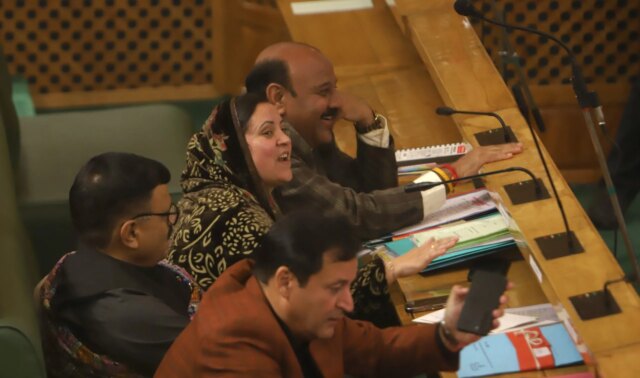Srinagar, Oct 29: The Jammu and Kashmir government has informed the Legislative Assembly that a total of 11,602 kilograms of suspected rotten and adulterated meat have been seized and destroyed across various districts of the Union Territory since July 31, 2025.
In a written reply to a question by MLA Mubarak Gul, the Minister Incharge Health and Medical Education Department said that under the Food Safety and Standards Act, 2006, there is no provision for lodging First Information Reports in such cases. However, appropriate penal and regulatory action has been initiated against the defaulting Food Business Operators in accordance with the provisions of the Act.
To curb the import and sale of substandard, rotten, or illegal consignments of meat and meat products, the department has undertaken several measures. These include the conduct of 1,430 inspections of Food Business Operators dealing with meat and meat products since July 2025, issuance of public notices to such operators dealing with frozen raw meat and meat products vide order numbers FADA-TECH/16/2021 dated August 1 and August 20, 2025, and issuance of Prohibition Order No. 60-FDA of 2025 dated October 3, 2025, restricting the manufacture, storage, distribution, transportation, and sale of frozen or chilled meat products not conforming to FSSAI standards.
The government has also launched special sampling and inspection drives across the Union Territory to ensure compliance with food safety norms. It has issued 102 improvement notices and suspended 14 licenses of Food Business Operators found in violation of the Food Safety and Standards Act. In addition, public awareness campaigns have been organized to promote the sale and consumption of hygienic and wholesome meat.
Regarding the cessation of inspection operations at Lakhanpur and changes at the Lower Munda checkpost, the reply stated that the modifications introduced at these checkpoints are part of a broader policy shift from traditional physical inspections to a technology-enabled, risk-based enforcement model aimed at improving trade facilitation and regulatory efficiency.
The minister acknowledged that concerns regarding legacy inspection mechanisms have been noted but clarified that the transition aligns with national policy directions intended to enhance transparency, reduce delays, and strengthen backend surveillance.
The government further said that inter-departmental coordination and intelligence-based enforcement continue to be pursued to ensure compliance and deterrence against violations. Any matters requiring criminal prosecution are referred to the appropriate enforcement agencies as per jurisdiction.
The reply was signed by the Minister Incharge Health and Medical Education Department and countersigned by the Deputy Secretary to the Government.








